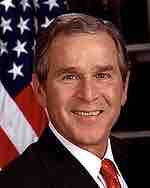Political Parties
Political parties are lobbied vigorously by organizations, businesses, and special interest groups such as trades unions. A party or its leading members may be offered money or gifts-in-kind. These donations are the traditional source of funding for all right-of-center cadre parties. Starting in the late 19th century, these parties were opposed by the new founded left-of-center workers' parties. They started a new party type, the mass membership party, and a new source of political fundraising, membership dues.
Social Movements
Social movements are a type of group action. They are large informal groupings of individuals or organizations which focus on specific political or social issues. In other words, they carry out, resist or undo a social change. Political science and sociology have developed a variety of theories and empirical research on social movements. For example, some research in political science highlights the relation between popular movements and the formation of new political parties as well as discussing the function of social movements in relation to agenda setting and influence on politics.
Advocacy Groups
In most liberal democracies, advocacy groups tend to use the bureaucracy as the main channel of influence. In liberal democracies, bureaucracy is where the decision-making power lies. Advocacy groups can also exert influence on political parties, and have often done so. The main way groups exert their influence is through campaign finance. In the UK, the conservative party's campaigns are often funded by large corporations, as many of the conservative party's campaigns reflect the interests of businesses. In the US, George W. Bush's re-election campaign in 2004 was the most expensive campaign in American history. It was financed mainly by large corporations and industrial interests . In contrast to the conservative right, left-wing parties are often funded by organized labor. When the Labor Party was first formed, it was largely funded by trade unions. Similarly, political parties are often formed as a result of group pressure. For example, the Labour Party in the UK was formed out of the new trade-union movement, which lobbied for the rights of workers.

George W. Bush
George W. Bush's re-election campaign in 2004 was largely funded by special interest groups such as financial banks and large industrial corporations.
More often than not, lobbying coalitions enter into conflict with each other. For example, in the issue of free trade, some corporate lobbyists seek to eliminate or dismantle tariffs, promoting free trade and the free movement of goods and services. By contrast, lobbyists representing farmers and rural interests seek to maintain or reinforce existing tariffs. It is in their best interest to preserve the status quo. If tariffs are reduced or eliminated, then American farmers are forced to compete with farmers from other trading countries. As these coalitions enter into conflict, congressmen must choose how to vote in the face of different pressures from different constituencies.